Fritextsökning
Artiklar per år
Innehållstyper
-

She creates pharmaceuticals on a 3D printer
The correct dosage for each individual, regardless of whether the pharmaceutical is for a seriously ill child or a frail elderly person, is the mission of a well-advanced project with 3D-printed drugs at Uppsala University. “It will soon be available in clinics”, says Christel Bergström, who is heading the project.
-

Neanderthal genes and Nobel Prize in a popular lecture at Bioscience
An inherited gene variant from our ”evolutionary cousins” – the extinct Neanderthals – may affect how our bodies break down certain drugs. “It’s only a matter of time before we actively start screening for it,” said KI researcher Hugo Zeberg when describing the study at Bioscience 2022.
-
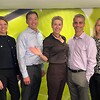
Cytel Inc acquires the SDS Group
The multinational statistical software developer and contract research organization Cytel Inc, headquartered in Massachusetts, USA, acquires the Swedish consulting company SDS Life Science.
-
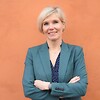
Marie Gårdmark: Potential step change – EU regulators get to play with data
A new pilot from EMA is starting in September to assess wether the analysis of 'raw data' by regulatory authorities improves the evaluation of marketing approval for new medicines. Marie Grådmark writes in a column that she is looking forward to the outcome of the pilot to hopefully then understand if “in house” analyses actually will add value.
-
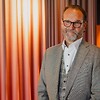
BioVentureHub CEO: “Companies with a high degree of interaction achieve greater success”
For the first time since its inception, AstraZeneca’s BioVentureHub can now recruit new companies, as some of its tenants have grown significantly and are leaving the hub. This is the message from the biohub’s CEO Magnus Björsne in an interview, in which he also highlights a study that points out that companies with a high degree of interaction with other companies achieve greater success.
-
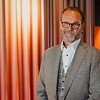
Bioventurehubs vd: ”Företag som interagerar mycket når större framgång”
Astra Zenecas Bioventurehub kan för första gången sedan starten rekrytera nya bolag då några av hyresgästerna växt väsentligt och nu lämnar hubben. Det berättar biohubbens vd Magnus Björsne i en intervju där han också lyfter fram en studie som pekar på att företag som interagerar mycket med andra bolag når större framgångar.
-
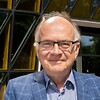
Göran Stiernstedt: “We are the world’s worst at continuity”
Failed investments in primary care, an unreasonable system with online doctors and a public failure at coordinating the healthcare IT system. Göran Stiernstedt does not mind his language when describing the shortcomings of today’s healthcare system. “It makes me extremely frustrated,” he says.
-
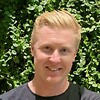
Startup-bolaget vill bli nästa Olink
Inte ens ett år gamla har Rarity Bioscience fått anslag från Swelife och Medtech4health. Nu hoppas vd:n Linus Bosaeus att deras teknik för detektion av mutationer i blodprov hos cancerpatienter ska nå laboratorier redan nästa år.
-

A growing industry in Denmark: “One new life science company a week”
The life science sector in eastern Denmark continues to grow in the number of employees, as well as the number of companies. An emerging problem is the shortage of labour, a new report reveals.
-

Växande bransch i Danmark – "Ett nytt life science-företag i veckan"
Life science-sektorn i östra Danmark fortsätter att växa, både i antal anställda och antal företag. Ett uppseglande problem är bristen på arbetskraft, enligt en ny rapport.
-

Hello Angelica Loskog!
Life Science Sweden would like to know more about Angelica Loskog and interviews her about her life as a researcher.
-

Björn Ursing: Physicians new role in AI driven healthcare
”AI could be the key we need for tomorrow’s healthcare, but it is not a stand-alone tool”, writes Björn Ursing in a column about how the role for physicians changes in the era of AI.
-

Study: An objective diagnosis of constant tinnitus may be possible
A new method that measures brain activity during sound stimulation can make it possible to objectively diagnose and identify people who suffer from constant tinnitus, which was demonstrated in a study made by researchers at the Karolinska Institute.